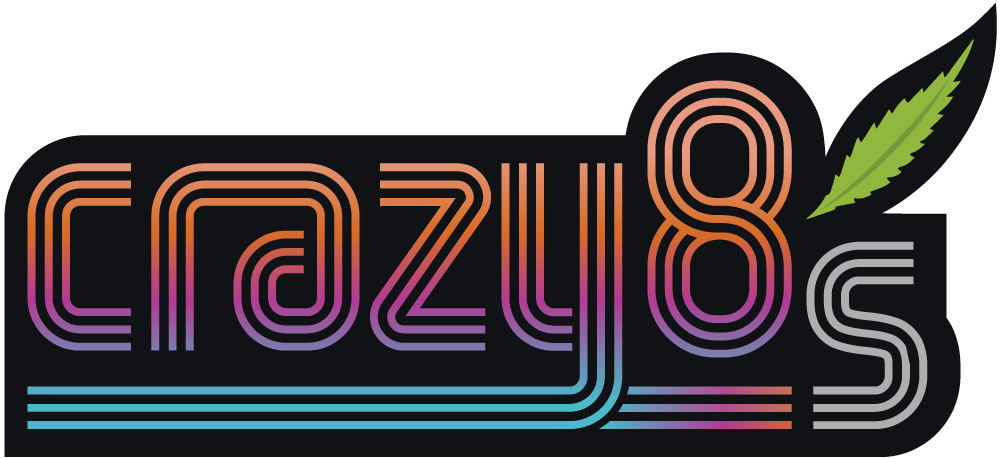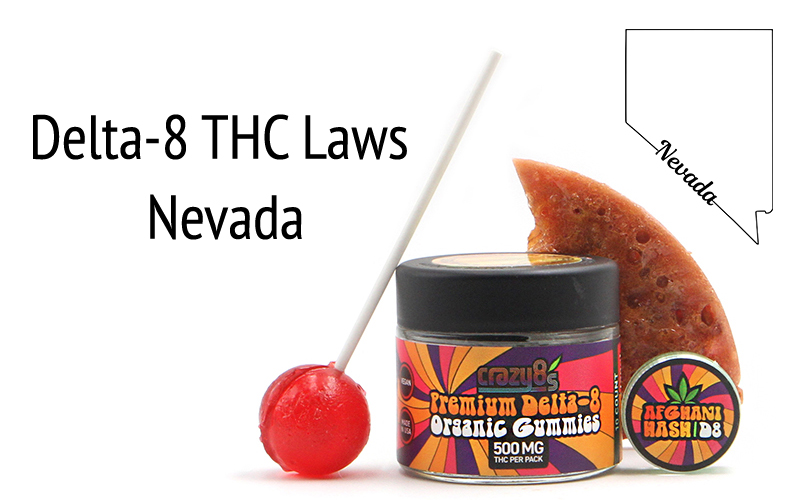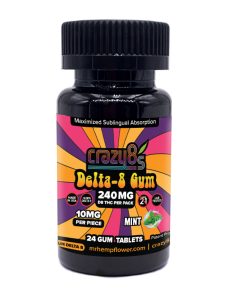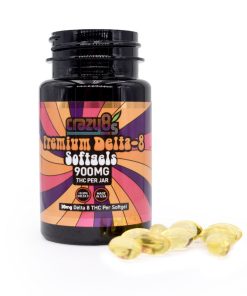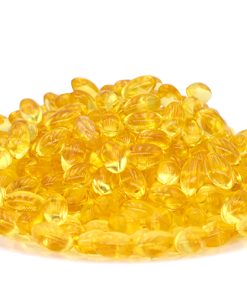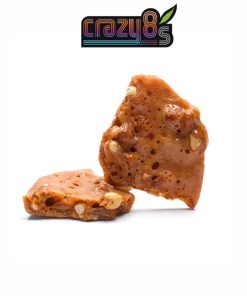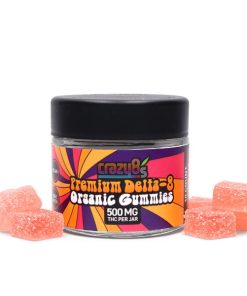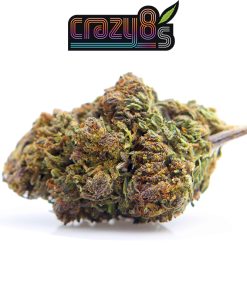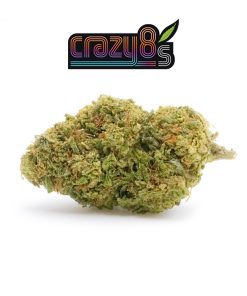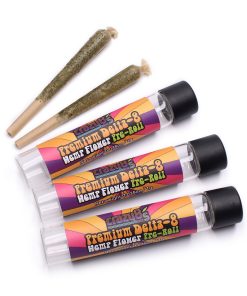Delta 8
You Need to Know This Before Buying Legal Delta 8 in Nevada
Buying hemp-derived Delta 8 THC in Nevada is not as effortless as you may think. Well, at least if you like to shop for it online. The state clearly distinguishes between the total THC percentage allowed in hemp and marijuana products, so the product range is restricted.
Is Δ8-THC derived from hemp legal in the Silver State? Let’s look at the current legal status of this substance in Nevada.
Is Delta 8 THC Legal in Nevada?
Delta 8 THC is legal in Nevada but with some restrictions. The Silver State considers Δ8-THC products with a total THC concentration of over 0.3% as cannabis.
What is Delta 8 THC?
Delta 8 THC is a sister molecule or an isomer of delta 9 THC naturally present in hemp in less than 1% of its entire chemical profile. As a milder form of THC, this compound is known as “weed light” among consumers who prefer a less stimulative option to traditional THC.
Like delta 9, delta 8 THC binds to the CB1 receptors in the brain — known to cause the THC intoxication. This compound has a slightly different chemical structure than delta 9 THC and is less potent. Users love Δ8-THC for its euphoric “head high” that helps deal with anxiety and intrusive thoughts, pain, nausea and vomiting, and sleep problems.
Buying Delta 8 THC in Nevada
You can buy Δ8-THC products in Nevada, but only those containing less than 0.3% total THC concentration — THC includes delta 8 and delta 9.
Crazy8s products are infused with higher levels of THC, which surpass the threshold of less than 0.3% total THC. For now, you can’t legally buy from us because we are not a registered cannabis brand under the state cannabis board.
If the law changes, or we start offering Δ8-THC with less than 0.3%, we’re here to serve your needs. We make our own products with premium Δ8-THC extract derived from organic US-based hemp farms. Our extracts are packed with cannabinoids and offer a pure and potent experience that provides adequate relief.
Our delta 8 gummies come in two unique flavors — Passion Fruit and Black Cherry Vanilla. They are a 100% natural product that provides the user with an effective dose of Δ8-THC.
Users describe these gummies as the perfect pre-bedtime treat that helps them unwind and calm racing thoughts. The long-lasting effects of this product make it suitable for weekends and vacations, or really anytime you can truly savor them.
Is Delta 8 THC Legal in Nevada?
Delta 8 THC is legal in Nevada, but only in products with a total THC concentration of less than 0.3%.
Nevada restricted the sale and distribution of Δ8-THC products. In February 2021, the Nevada Cannabis Compliance Board (CCB) stated in their monthly newsletter that according to state law, delta 8 THC, delta 9 THC, and their optical isomers are counted in the total THC concentration of a hemp product.
This means that only hemp-derived products with less than 0.3% THC (regardless of which form) are legal to buy in Nevada. The Cannabis Compliance Board also clarified that “products exceeding 0.3% THC, including delta 8 and delta 9 THC, would be considered cannabis. As such, a license from the CCB would be required in order to make it or sell it.”
In conclusion, you can buy Δ8-THC products in Nevada, but only from licensed manufacturers and distributors. That is if the Δ8-THC products contain over 0.3% THC because, in that case, they are considered cannabis. Hemp-derived THC products with low delta 8 amounts are legal in the state if they don’t exceed the total THC threshold.
What Does the Future Hold?
Like many states where recreational cannabis is legal, Nevada also regulated the distribution and sale of Δ8-THC products with over 0.3% total THC. This may change in the future if hemp-derived Δ8-THC becomes 100% legal federally. The state follows federal law in regards to adding CBD in food, so some cannabinoid blends are in a legal gray area.
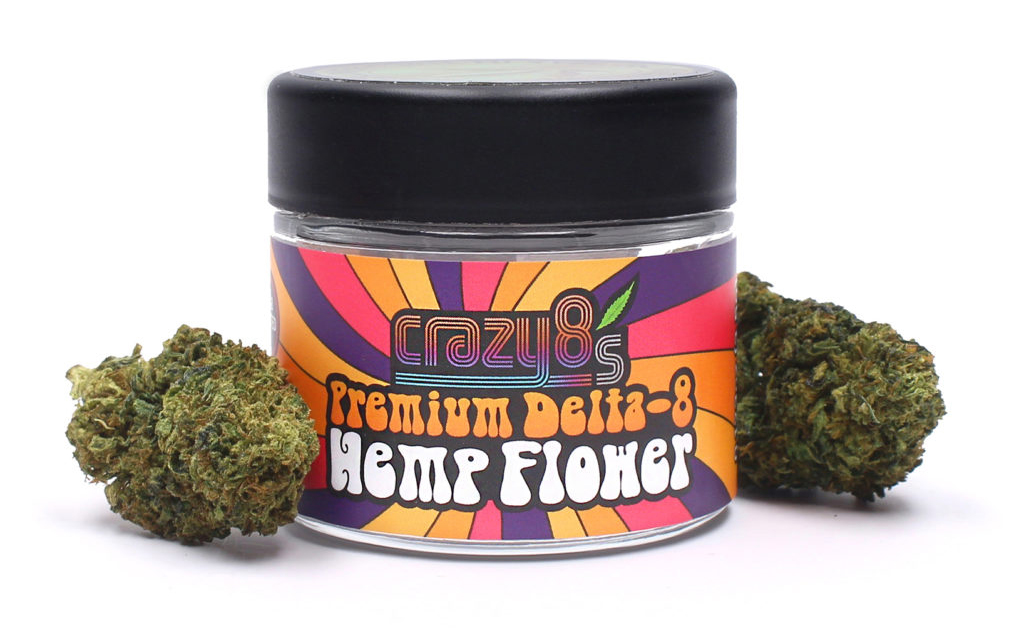
Is Delta 8 THC Legal Federally?
Businesses, consumers, and states have been uncertain about the legal status of delta 8 THC. In an attempt to clear up regulatory questions surrounding this substance, in August 2021, the Alabama Board of Pharmacy requested an explanation from the US Drug Enforcement Administration (DEA).
In a response letter, the DEA noted that “cannabinoids extracted from the cannabis plant that have a Δ9-THC concentration of not more than 0.3 percent on a dry weight basis meet the definition of ‘hemp’ and thus are not controlled under the CSA.”
But, it also noted that delta 8 “synthetically produced from non-cannabis material” is a controlled substance under the federal Controlled Substances Act. While the letter provides nonbinding advice, its full implications remain unclear.
The federal agency hasn‘t specified whether Δ8-THC produced from CBD would be considered synthetically produced. As you may know, most Δ8-THC on the market is converted from CBD, which is a hemp ingredient. But, the manufacturing process involves other non-cannabis ingredients, which is the “synthetic” part of creating this substance.
The letter does suggest that delta 8 extracted from hemp that contains less than 0.3% delta 9 THC is legal at a federal level. The FDA recently issued a warning to consumers about the dangers of consuming this unregulated substance. Although that doesn’t solve the question about delta 8’s legality, it shows the complicated situation around it.
Yes, delta 8 THC is legal in Nevada, but with some restrictions. The state considered all hemp-derived products with over 0.3% THC (delta 8 and delta 9) cannabis.
Nebraska defers to federal law regarding the sale of this substance, and federal law hasn’t banned its sale as long as it’s derived from hemp and contains less than 0.3% delta 9.
You can, but only hemp-derived products with less than 0.3% total THC (includes delta 8 and delta 9).
No, this substance is illegal in 18 states and is in the process of being restricted by a few others.
Read our legal disclaimer HERE. While we try to stay as up to date as possible on all state laws, you should do your own due diligence and work with a legal professional to ensure you are operating legally in your state or territory at all times.
